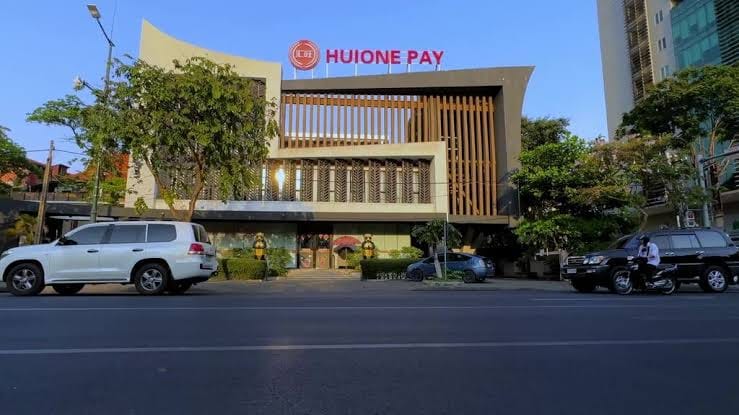The head of the global financial crime watchdog has called for countries to stop the use of shell companies, saying they are like a “getaway car” for criminals.
Elisa de Anda Madrazo, a Mexican who became president of the Financial Action Task Force last year, said countering the problem of shell companies will be a key part of a new round of national assessments.
The FATF is a Paris-based intergovernmental anti-money laundering group that assesses countries in a six-year cycle on the implementation of recommendations designed to reduce financial crime.
ALSO SEE: Trump Will Ask Supreme Court to Allow Tariffs After Legal Setback
FATF’s focus on shell companies comes after both the United States under President Donald Trump and Switzerland have this year rowed back on transparency rules for beneficial owners.
In the next round of assessments, “we will be looking heavily into the effectiveness of those systems,” de Anda Madrazo told Reuters in an interview. She described shell companies as the “getaway car” that enables criminals to move money around the world without detection.
“Countries need to make sure that the information is updated, complete, accurate, and readily available for law enforcement authorities,” she said.
“We do see countries that are implementing the standard and moving in that direction,” she added.

The FATF can put countries with weak measures for combating crime on its “grey list”, which brings increased monitoring and can damage their appeal among investors.
Countries currently on the list include Monaco and the British Virgin Islands. North Korea, Iran and Myanmar are on a black list.
Scam centres in SE Asia
A vast number of scam centres have been built on the Thai-Myanmar border in an ethnic enclave run by an ethnic Karen warlord near the town of Myawaddy, where tens of thousands of people are said to be held against their will and forced to undertake scams on people in other countries via social media.
Analysts investigating criminal activity in Southeast Asia say Cambodia avoided being put on the FATF grey list in late 2022 by getting corrupt officials to stage ‘fake crackdowns.’ And now, scam centres are spread across almost every province in the country.
In January, blockchain analytics firm Elliptic said Huione Group, a Cambodian company with ties to the country’s ruling family, was “the largest online criminal marketplace in history.”
US Treasury officials and numerous investigative reports have described Huione as a multi-billion-dollar hub for cybercrime and one of the world’s biggest money-laundering groups.
Problems in the US, UK and Switzerland
Meanwhile, all is not well in the United States. Earlier this year, Washington dropped some measures aimed at combating illicit finance.
The US Treasury Department’s financial crimes unit in March stopped requiring domestic companies to provide the government with data on their beneficial ownership, although foreign firms are still required to do so.
And in June, Switzerland’s parliament excluded foundations and associations from a planned national transparency register of beneficial owners, a step which the government had previously warned would jeopardise Switzerland’s commitment to combating money laundering and terrorist financing.
A 2023 study by Moody’s of 472 million registered companies around the world found that nearly 20 million had at least one characteristic which could indicate a shell company. The UK had by far the most red flags raised.
Asked whether increasing polarisation between countries was making it harder to combat crime, de Anda Madrazo said, “any kind of fragmentation on international collaboration and communication impairs an agenda.”
“At the FATF level, I can tell you that in this year, we haven’t seen a decrease in the commitment of the members,” de Anda Madrazo said. She said that also applied to the wider global network.
Online crime is a top challenge for FATF, authorities to play “whack-a-mole” as it constantly evolves, de Anda Madrazo said.
Virtual assets such as cryptocurrencies remain high on FATF’s agenda, as criminals increasingly use them to move money across borders undetected, she said.
- Reuters with additional input and editing by Jim Pollard
ALSO SEE:
Cambodian Scam Centres Straining Ties With States Near And Far
US Sanctions Karen Warlord, Cambodia ‘Money Laundering Group’
Cyber Scam Hubs Spread From Asia Like a Global Cancer: UN
Thousands in Limbo as Thailand Fights Scam Hubs on Two Fronts
Scam Centre’s Abduction of Chinese Actor a Blow For Thai Tourism
SE Asia Crime Networks Rely on Telegram, Crypto, UN Says
Weak ASEAN Nations ‘at Risk of Evolving Into Scamming States’
‘US to Sanction Prominent Cambodians Tied to Scam Centres’
N Korean Hackers Used Cambodian Firm to Launder Stolen Crypto
Cambo-Chinese Firm Tied to Crypto Scams, Money Laundering
Scamming Compounds in SE Asia Stole $64 Billion in 2023: Report
High-Tech Asian Crime Wave: Cyber Scams, Casinos Loot Billions
Big Tech ‘Doing Little’ to Counter Rampant Scams on Social Media























